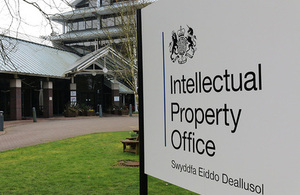New study highlights perspectives of the UP and UPC
The study explores the key issues of business and legal communities with the UP and UPC and recommends how best to address these issues.

Intellectual Property Office
A new study highlighting the attitudes of the business and legal sectors towards the Unitary Patent and Unified Patent Court has been published today. The independent study, Exploring perspectives of the Unitary Patent and Unified Patent Court within business and legal communities, was undertaken by Dr. Luke McDonagh of Cardiff University.
The study shows that, despite some concerns amongst potential end users of the system, businesses and legal professionals expect that the UP and UPC will succeed if these concerns are addressed.
Key findings include:
- judicial composition and quality around common standards in all 25 member states will be crucial to the success of the UPC. The establishment of a high-quality judiciary together with effective training and clear UPC Rules of Procedure across the entire UPC system will alleviate these concerns
- the potential costs of the new system to patent holders, particularly SMEs, are a concern for participants. In particular, there is a desire to keep fees as low as possible
- the ability of users to ‘opt out’ of the UPC is a key issue. Whilst most businesses are undecided on whether or not they will opt out their European patents from the Court’s jurisdiction, there is a strong feeling that the fee for doing so should be set at an administrative level only
- the London-based Central Division will be beneficial for the legal community in London and for Pharmaceuticals more generally. The use of English at the UPC is seen as a benefit for UK firms
- SME concerns relate to cost and the risk of revocation and injunction at the Court
- overall, concerns such as higher costs, greater complexity and more patent troll litigation are countered by the potential benefits of lower costs and one-stop enforcement
Lord Younger, Minister for Intellectual Property said:
The Unified Patent Court and the Unitary Patent will be important additions to our legal and business communities, however much has still to be decided on how either will operate. I welcome this study which strengthens our evidence base of patenting behaviour and helps us to further our understanding of the attitudes of these communities towards the Court and the Unitary Patent.
A Patent system unified across Europe is important for growth and innovation in the UK. The issues and concerns the study raises will greatly assist in its successful and timely implementation.
Roger Burt, Immediate Past President of CIPA said:
CIPA welcomes this independent research carried out by Dr Luke McDonagh. The key findings are welcomed and clearly reflect the concerns of our members and their clients and employers. There is optimism about the system and a desire to see it work well; however, how well it is used will depend on the planners/organisers of the Unitary Patent and the Unified Patent Court making use of Luke’s research and his findings to harness the goodwill towards the system.
The main objectives of the study were to identify the key issues of concern to business and legal sectors and assess the overall sentiment with respect to the introduction of the Unified Patent Court and the Unitary Patent.
The study was launched on 9 July at an event co-hosted by the IPO and Chartered Institute of Patent Attorneys, attended by participants in the study, representatives from the legal and business communities and academics in the field.
Notes to editors
- The study interviewed 28 participants comprising of large multinational businesses and legal professionals.
- A recording of the launch event is available.
- The Unitary Patent (UP), or European Patent with unitary effect, will have effect across all 25 countries which have agreed to take part, including the UK. A single court, the Unified Patent Court (UPC), will allow patent disputes to be resolved at a single court and decisions will be enforceable in all signatory states. The Court is to be established by an Agreement, which was signed as an intergovernmental treaty in February 2013 by the 25 states.
- Those that do not want to use the UP/UPC will also still be able to obtain a ‘patent bundle’ from the European Patent Office. These patents will become subject to the jurisdiction of the UPC but, during the transitional period (initially 7 years but may be extended to 14 years), they may ‘opt out’ of the UPC’s jurisdiction. If the patentee chooses to ‘opt-out’ this will last for the duration of that patent unless the patentee chooses to opt back into the UPC’s jurisdiction.
- A Preparatory Committee was set up to ensure that the court is delivered in accordance with the intergovernmental treaty and each of the 25 signatory states has a representative on the Committee. It agrees on issues such as the Rules of Procedure of the court and the provision of an IT system. The committee celebrated its first anniversary at its fifth meeting on 18 March 2014, where a revised roadmap was agreed and it was acknowledged that the Court would not be ready before the end of 2015.